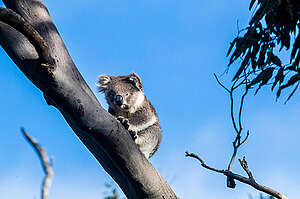With the release of Greenpeace Australia Pacific’s new report Pacific Bully and International Outcast, there’s now definitive proof Australia exploits and bullies Pacific Island nations’ desperate need for action in the face of climate change, writes Shiva Gounden from COP2 in Glasgow.
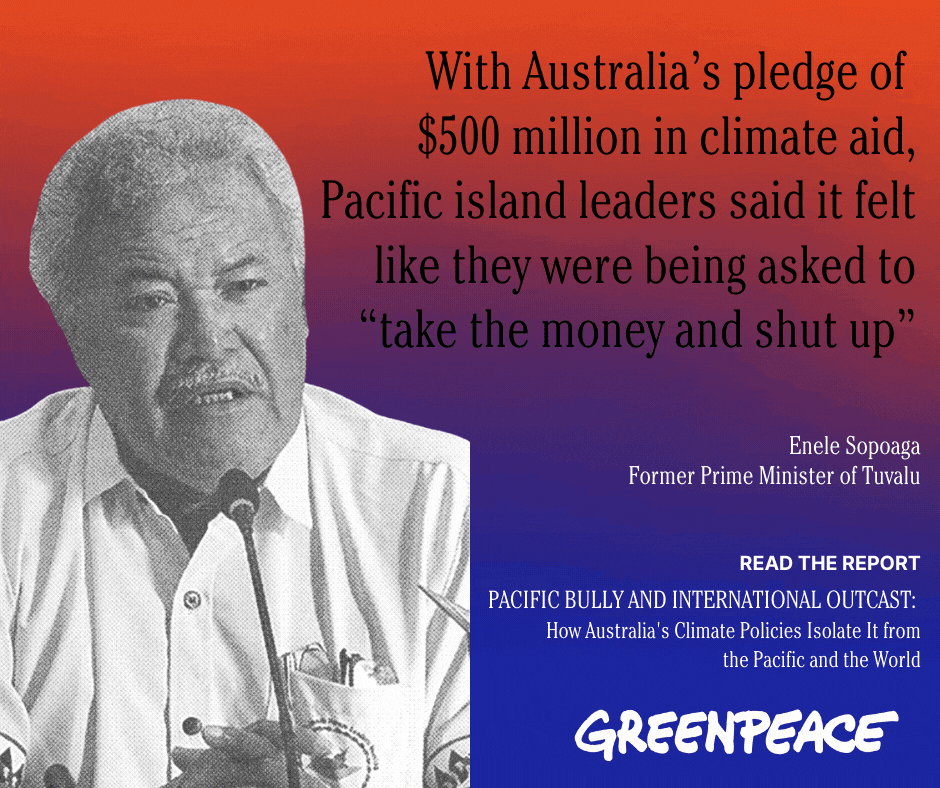
As one of the few Pacific Islanders able to attend COP26, the cynical attitude of governments choosing to play games instead of genuinely attempting to help solve the crisis is infuriating and deeply saddening.
After hearing the warnings and seeing climate-fuelled extreme weather wreak havoc from the Pacific Islands to the Arctic Circle, no leader at COP26 can claim ignorance when it comes to the threat of the climate crisis.
Despite these undeniable facts, too many leaders still choose to delay the urgent climate action that Pacific Island leaders have been calling for, for as long as I can remember.

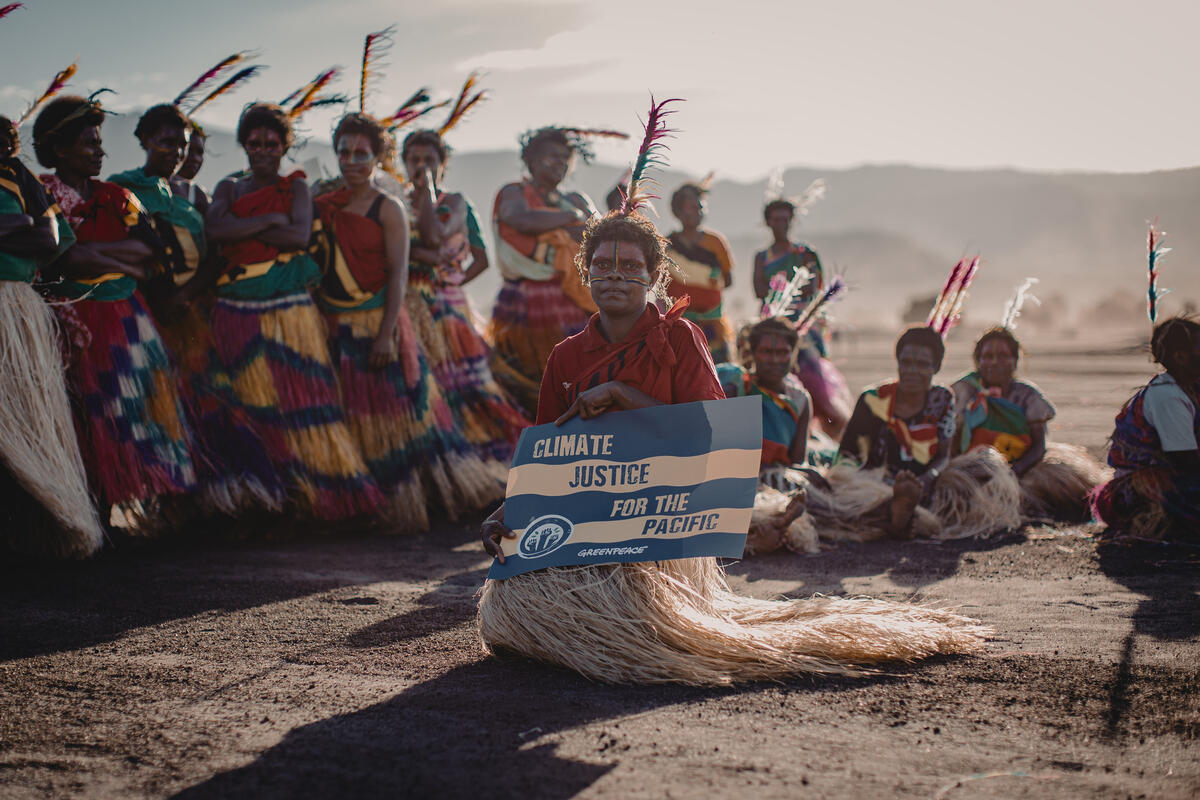
For those of us in the Pacific, no government is more guilty of this than Australian Prime Minister Scott Morrison’s. And nothing embodies this approach more than his recent speech at COP26.
Morrison essentially brought nothing new to the table. Everyone knew this was the approach he would take and no one was surprised. What did generate headlines, besides from the international outcry at one of the world’s largest fossil fuel users refusing to make meaningful emissions cuts, was the announcement of $2 billion in climate finance for the Indo-Pacific region.
Greenpeace Australia Pacific’s new report Pacific Bully and International Outcast: How Australia’s climate policies isolate it from the Pacific and the world, reveals why Australia’s new commitment is nothing to get excited about.
The report, based on the testimony of current and former Pacific Island leaders, exposes how successive Australian governments have used aid to silence the Pacific’s calls for stronger climate action.
Courageous leaders such as former Kiribati President Anote Tong and former Prime Minister of Tuvalu, Bikenibeu Paeniu and Vanuatu’s current Opposition Leader and former Foreign Minister Ralph Regenvanu have painted a picture of Australian leaders and diplomats as bullies that uses heavy-handed chequebook diplomacy to keep Pacific Islanders quiet.
At a press conference at COP26 to launch the report overnight, Secretary-General of the Pacific Conference of Churches Rev James Bhagwan delivered an impassioned account that gave me goosebumps and had people in tears as he spoke about the dilemma Pacific leaders are facing in relation to Australian climate funding. What resonated with me deeply was when he highlighted the concept of “Vuvalu”. Vuvalu in my culture is the very spirit of family. The word has been bastardised by the Australian government.
Islands are in desperate need, he said, and Australia exploits this dynamic to silence the regions’ leaders on the most important issue they are facing.
It’s shameful and it makes me emotional as well.
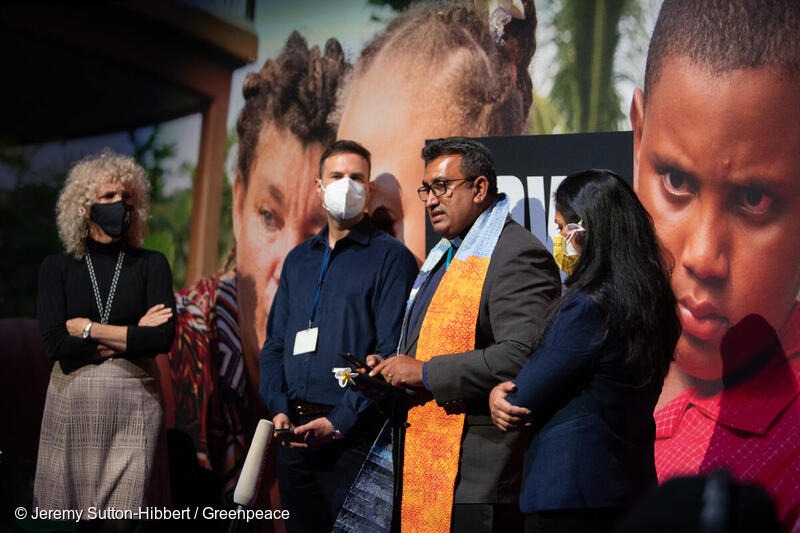
As a Pacific Islander living in Australia, the behaviour of the Australian Government at conferences like COP26 infuriates and disappoints me deeply.
Scott Morrison’s latest funding announcement is for the entire Indo-Pacific region, it will be spread so thin that it will barely make a difference for my people. The amount of funding is also negligible when compared to the billions of dollars Australia spends on projects and subsidies for the fossil fuels that are driving the climate crisis and threatening the existence of Pacific islands and cultures.
This injustice is compounded by the fact that many projects slated as being for climate adaptation have only tenuous or even no links to climate change whatsoever.
In 2018, only 23% of Australian funded projects in the Pacific tagged as “significantly focused on climate adaptation” went to projects related to climate or the environment. In 2019, this fell to 22%.
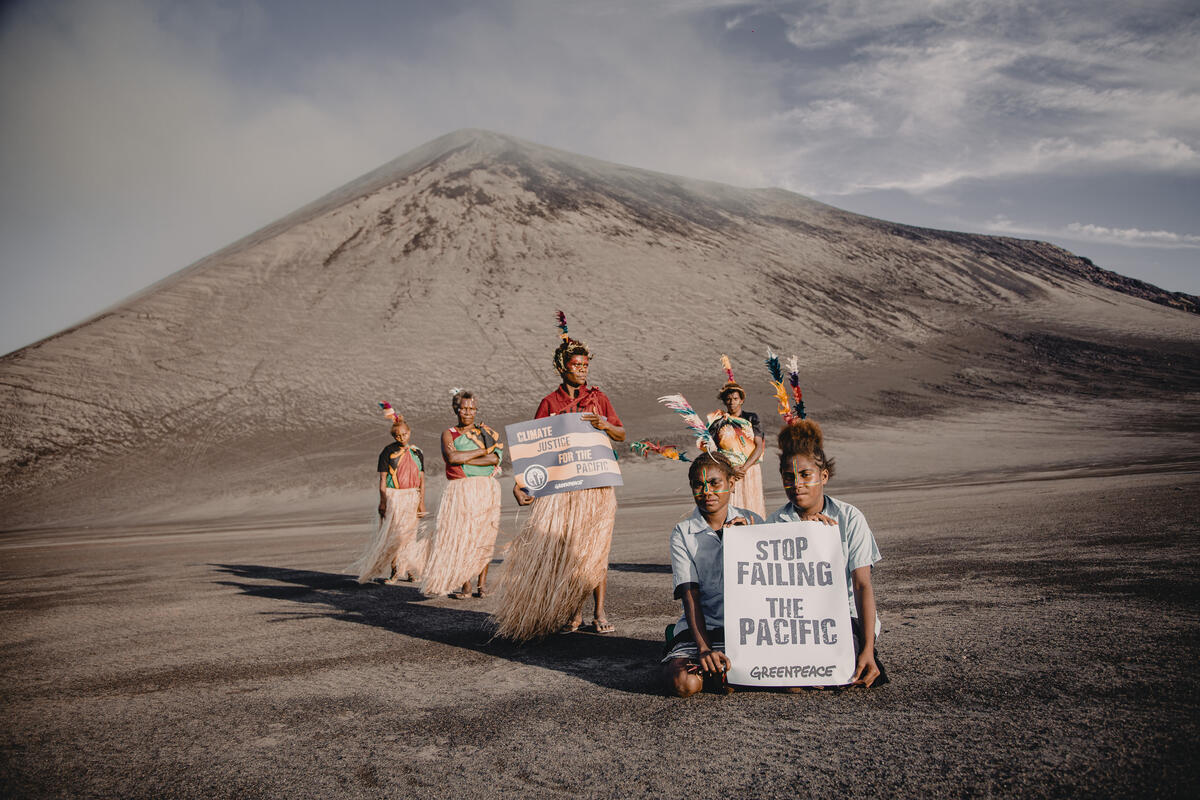
Australia is able to get away with this because it provides this funding bilaterally. Australia left the UN’s Green Climate Fund in 2019. It’s not perfect but it has been agreed to by all members of the UNFCCC. There are checks and balances to try and ensure that the finance is used for climate adaptation. The Morrison government’s choice to go around this facility suggests that he may have other motives than protecting vulnerable countries from climate.
This type of behaviour combined with Australia’s consistent blocking of climate action at global forums like COP26 has seen the country become an international outcast.
Morrison’s thuggish behaviour has not gone unnoticed on the world stage. The way he ambled aimlessly with his head down, pretending to play with his phone while surrounded by a host of G20 leaders, reveals that Morrison is a leader with no mates.
No one wants to be friends with a bully.
– Shiva Gounden, Greenpeace Australia Pacific Volunteer and Activist Coordinator on the ground at COP26 in Glasgow.
We will be heard. We are the frontline. We demand climate justice now!

